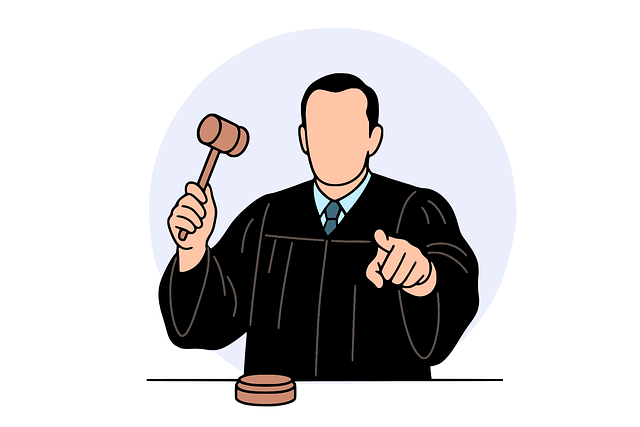Cartel investigations into business collusion require a blend of legal expertise and advanced analytics. Authorities employ data collection, witness interviews, and document analysis, often with sophisticated tools, to uncover illicit behaviors. Common penalties include substantial fines and prison sentences. Companies should initiate internal investigations early, using data analytics to identify potential misconduct. Compliance programs, robust internal controls, and ethical culture are vital to mitigate risks and avoid severe penalties like fines and imprisonment. Effective risk management involves proactive assessment, adherence to best practices, and strong documentation protocols. Stay vigilant against anti-competitive practices to prevent cartel investigations and their detrimental consequences.
- Understanding Cartel Investigations: Unraveling the Complexities
- Key Steps in Identifying and Initiating Legal Proceedings
- The Spectrum of Penalties: Consequences for Non-Compliance
- Effective Risk Mitigation Strategies for Businesses
- Case Studies: Lessons from Real-World Cartel Scandals
Understanding Cartel Investigations: Unraveling the Complexities
Cartel investigations are intricate, high-stakes cases that demand a deep understanding of both legal and economic nuances. These probes delve into allegations of collusion among businesses or individuals to fix prices, allocate markets, or restrict competition, often involving complex networks and subtle evidence. Unraveling such complexities requires a meticulous approach, as penalties for white-collar and economic crimes can be severe.
Procedures for Cartel Investigation vary across the country, but common threads include comprehensive data collection, witness interviews, and extensive document analysis. Authorities employ advanced analytics to identify patterns suggesting illicit behavior, which can lead to significant legal repercussions. Penalties for convicted cartels often include substantial fines and prison sentences, reflecting the severity of these economic crimes.
Key Steps in Identifying and Initiating Legal Proceedings
Identifying potential legal issues is a critical step in managing litigation risk, especially when it comes to complex matters like cartel investigations. Companies should initiate an internal investigation as soon as they suspect any misconduct within their respective business operations. This initial probe aims to uncover evidence of illegal activities, such as price-fixing or market allocation, which could lead to severe penalties under antitrust laws. By employing robust and comprehensive data analytics tools, organizations can identify unusual patterns or deviations from ethical practices, thereby initiating prompt action.
The process involves gathering and examining documents, communications, and financial records. Legal experts should be engaged at this stage to provide guidance on the respective business’s legal obligations and potential risks. A thorough review ensures that any evidence of white-collar and economic crimes is documented, preserving it for future use in court proceedings if required. This proactive approach can significantly mitigate the consequences of a successful Cartel Investigation Procedures and Penalties case, which could result in substantial monetary fines and even a complete dismissal of all charges against the company.
The Spectrum of Penalties: Consequences for Non-Compliance
The consequences of non-compliance with legal requirements can vary widely, depending on the nature and severity of the infraction. In the context of a cartel investigation, procedures and penalties are designed to deter anti-competitive practices and ensure fair market competition. These can include substantial fines, which may be levied against individuals and companies alike, reflecting the high stakes involved in such cases. The spectrum of penalties extends beyond financial sanctions, encompassing potential imprisonment for those found guilty of criminal offenses, particularly in high-stakes cases that have significant impacts across the country.
For businesses, non-compliance can result in loss of reputation, market share, and even liquidity, as seen in numerous general criminal defense scenarios. The severity of these penalties underscores the importance of robust internal controls and compliance programs. Effective risk management in litigation involves staying informed about evolving regulations and legal precedents, implementing rigorous adherence protocols, and fostering a culture that prioritizes ethical conduct and full disclosure.
Effective Risk Mitigation Strategies for Businesses
In today’s complex business environment, effective risk management is paramount to ensuring long-term success and sustainability. One area that demands meticulous attention is litigation risk, particularly in light of stringent regulations and increasing legal complexities. For businesses, especially those operating in high-stakes sectors like financial services or healthcare, implementing robust risk mitigation strategies is not just an option but a necessity. A comprehensive approach involves identifying potential legal risks early on, conducting thorough due diligence, and putting in place procedures that align with industry best practices.
Cartel investigation procedures and penalties have become a significant focus for regulators worldwide, with severe consequences for companies involved in anti-competitive practices. Businesses should invest in strong internal compliance programs, encompassing regular training for employees on ethical conduct and avoiding white-collar offenses. Proactive risk assessment methods, including scenario planning and stress testing, can help organizations prepare for potential legal challenges. Additionally, establishing robust documentation protocols ensures transparency and aids in defending against unfounded allegations, especially in high-stakes cases where reputation and financial exposure are at stake.
Case Studies: Lessons from Real-World Cartel Scandals
In recent years, real-world cartel scandals have served as stark reminders of the significant risks associated with non-compliance and unethical business practices. These cases, often involving complex global networks, have led to substantial penalties and damaged reputations for companies caught in their web. By examining these real-life scenarios, businesses can glean valuable insights into effective litigation risk management strategies.
Cartel investigations, particularly those related to price-fixing or market allocation, are intricate processes that demand meticulous documentation and a deep understanding of industry dynamics. Companies found guilty face severe consequences, including substantial monetary fines, legal fees, and potential criminal charges for key individuals. The impact extends beyond financial losses; these scandals erode consumer trust and can lead to long-lasting brand damage. An unprecedented track record of successful cartel investigations highlights the importance of proactive risk mitigation measures. Avoiding indictment requires robust internal controls, ethical conduct, and a culture that fosters transparency, ensuring companies remain competitive while navigating regulatory landscapes.
Litigation risk management is an essential aspect of modern business strategy, especially in light of complex cartel investigations. By understanding the procedures and potential penalties associated with these inquiries, companies can proactively identify and mitigate risks. The article has explored various key steps, from recognizing signs of collusion to initiating legal proceedings, and highlighted the wide-ranging consequences of non-compliance. Effective risk mitigation strategies, including comprehensive internal audits and robust compliance programs, are vital tools for businesses navigating these intricate matters. Through examining real-world cartel scandals, we’ve unearthed valuable lessons that underscore the importance of staying vigilant and proactive in litigation risk management.






